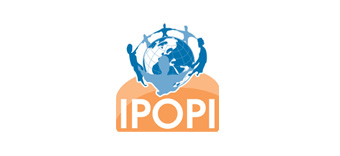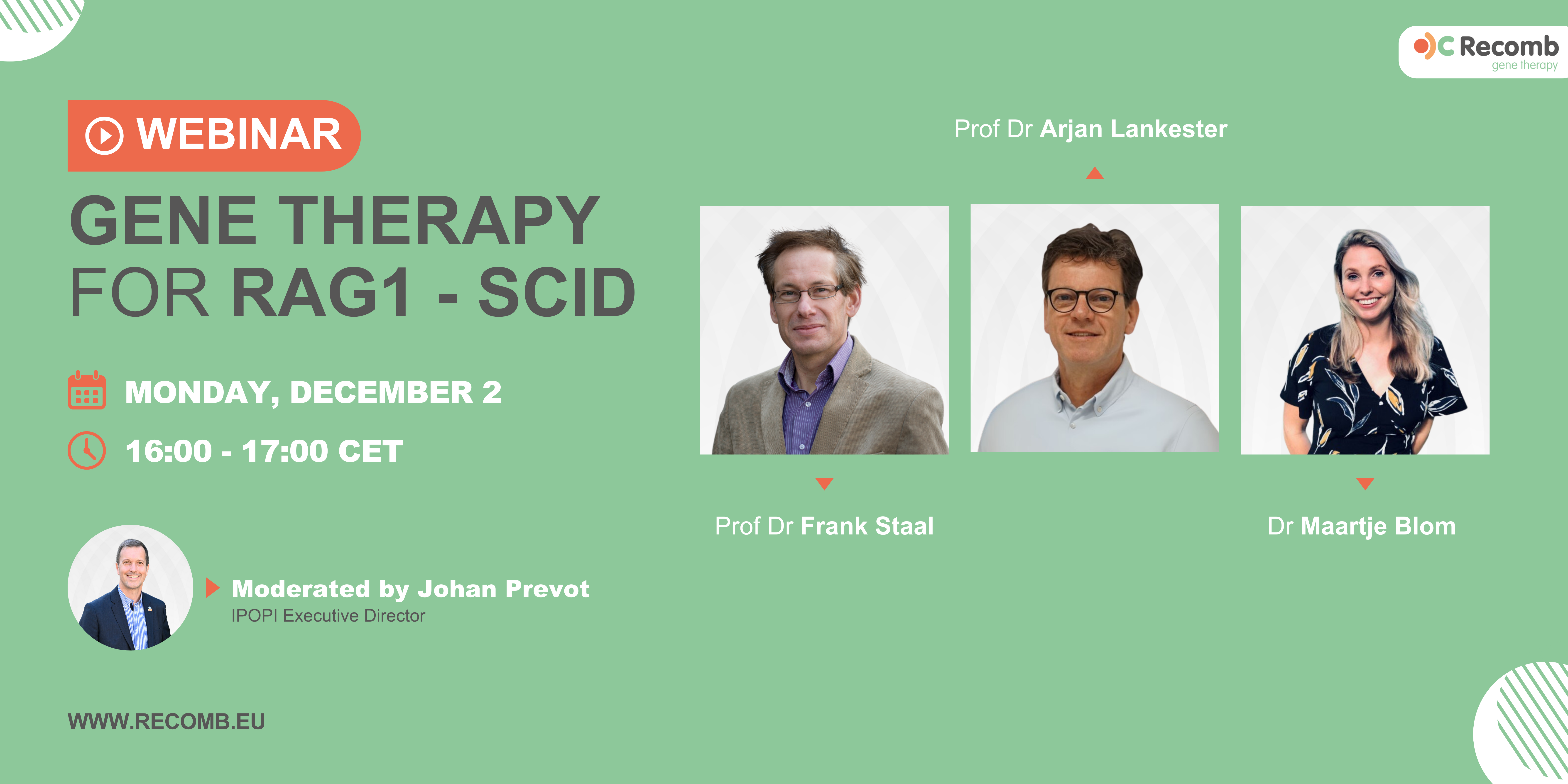December 16, 2024
RECOMB Webinar: Advancing RAG1-SCID Gene Therapy
On December 2, IPOPI hosted a webinar to share the findings of the RECOMB project, a Horizon 2020-sponsored multi-stakeholder collaboration seeking to fill the unmet medical need for treating Recombination Activating Gene Deficient Severe Combined Immunodeficiency (RAG1-SCID) by carrying out the first-in-human clinical study on RAG1 lentiviral gene therapy. This type of SCID features a mutation on the gene RAG1, preventing the correct development of T cells in the thymus. This multicentre study aimed to demonstrate that it was possible to safely add this gene to patient cells, and, thus, cure this fatal infant condition.
The RECOMB project, led by Prof Dr Arjan Lankester and Prof Dr Frank Staal, both from Leiden University Medical Centre in the Netherlands, has resulted so far in the successful treatment of 5 patients. We kept the commitment of “Cells travel, not the patient/family” to diminish the family and newborn burdens associated with the treatment. To do this, multiple centres were approved in and outside Europe to administer the cells corrected at Leiden and follow up with these patients. All treated patients are being supervised and showing signs of recovery.
An important aspect of the project was to study the cost-benefit of gene therapy and the data collected from all centres will be pivotal to helping these therapies reach the patients who need them.
The webinar summarised the results of the project following the last scientific consortium meeting in Leiden on November 26, when each work package leader was able to share their findings and prospects for not only the project but the future of gene therapy in RAG1-SCID. Despite the end of the project, the consortium remains resolute in continuing the follow-up and recruitment of new patients whilst aiming for market approval. As a partner and work package leader of the RECOMB project, IPOPI is determined to continue collaborating on the next phase of this immensely valuable initiative for our patients’ community.

